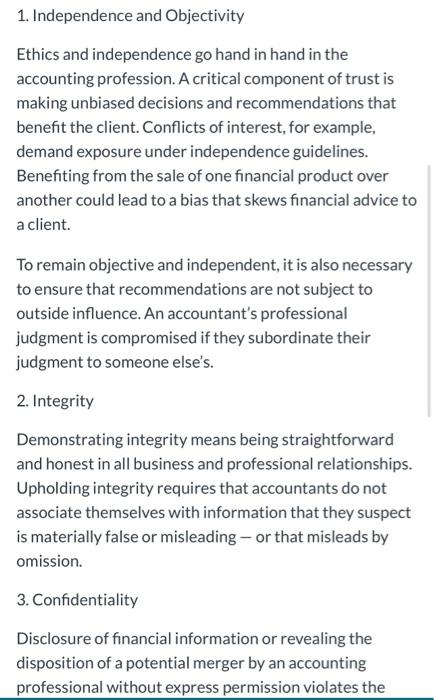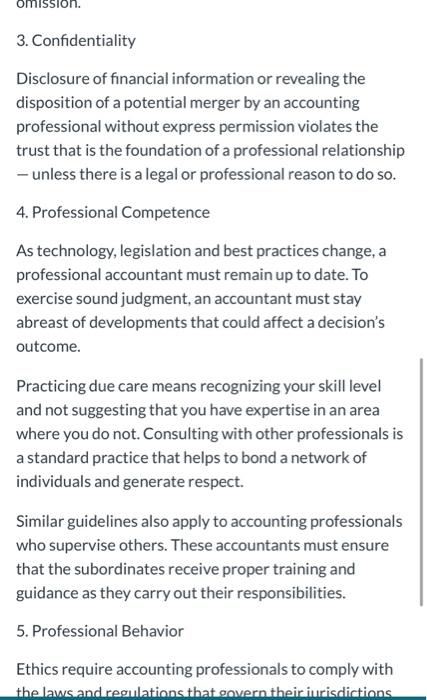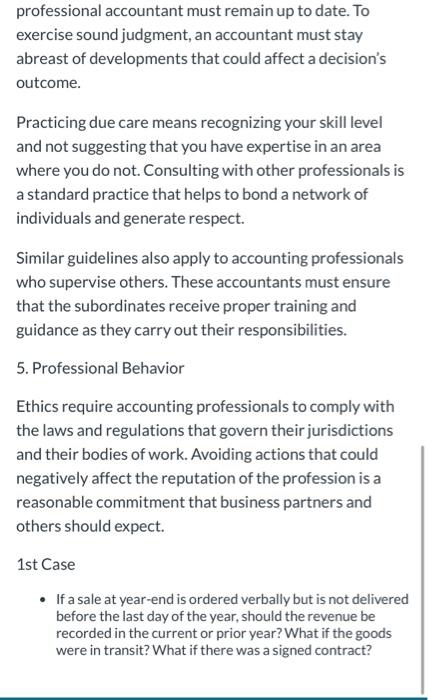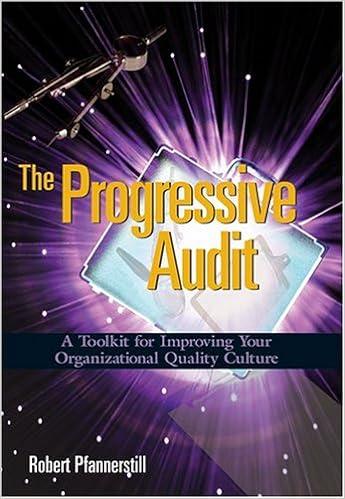1. Independence and Objectivity Ethics and independence go hand in hand in the accounting profession. A critical component of trust is making unbiased decisions and recommendations that benefit the client. Conflicts of interest, for example, demand exposure under independence guidelines. Benefiting from the sale of one financial product over another could lead to a bias that skews financial advice to a client. To remain objective and independent, it is also necessary to ensure that recommendations are not subject to outside influence. An accountant's professional judgment is compromised if they subordinate their judgment to someone else's. 2. Integrity Demonstrating integrity means being straightforward and honest in all business and professional relationships. Upholding integrity requires that accountants do not associate themselves with information that they suspect is materially false or misleading - or that misleads by omission. 3. Confidentiality Disclosure of financial information or revealing the disposition of a potential merger by an accounting professional without express permission violates the 3. Confidentiality Disclosure of financial information or revealing the disposition of a potential merger by an accounting professional without express permission violates the trust that is the foundation of a professional relationship - unless there is a legal or professional reason to do so. 4. Professional Competence As technology, legislation and best practices change, a professional accountant must remain up to date. To exercise sound judgment, an accountant must stay abreast of developments that could affect a decision's outcome. Practicing due care means recognizing your skill level and not suggesting that you have expertise in an area where you do not. Consulting with other professionals is a standard practice that helps to bond a network of individuals and generate respect. Similar guidelines also apply to accounting professionals who supervise others. These accountants must ensure that the subordinates receive proper training and guidance as they carry out their responsibilities. 5. Professional Behavior Ethics require accounting professionals to comply with the laws and regulations that onvern their iurisdictions professional accountant must remain up to date. To exercise sound judgment, an accountant must stay abreast of developments that could affect a decision's outcome. Practicing due care means recognizing your skill level and not suggesting that you have expertise in an area where you do not. Consulting with other professionals is a standard practice that helps to bond a network of individuals and generate respect. Similar guidelines also apply to accounting professionals who supervise others. These accountants must ensure that the subordinates receive proper training and guidance as they carry out their responsibilities. 5. Professional Behavior Ethics require accounting professionals to comply with the laws and regulations that govern their jurisdictions and their bodies of work. Avoiding actions that could negatively affect the reputation of the profession is a reasonable commitment that business partners and others should expect. 1st Case - If a sale at year-end is ordered verbally but is not delivered before the last day of the year, should the revenue be recorded in the current or prior year? What if the goods were in transit? What if there was a signed contract









